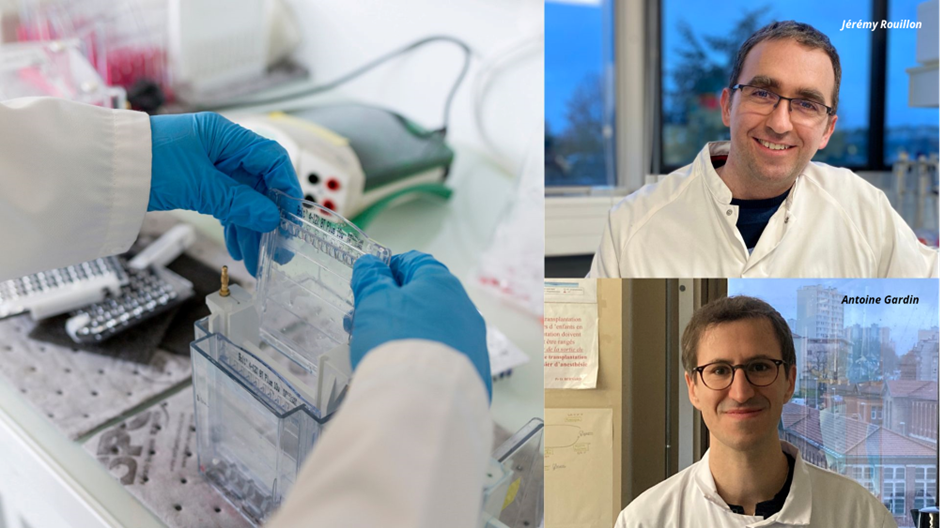Genethon evaluates a new therapeutic approach for glycogen storage disease III
In a study published in the « The Journal of Clinical Investigation » on November 28, Jérémy Rouillon, a research engineer at Genethon and Antoine Gardin, a pediatrician and PhD student at Généthon, in the Immunology and Liver Diseases team led by Giuseppe Ronzitti, have designed an innovative strategy that provides a truncated version of the Glycogen Debranching Enzyme (GDE) to correct the accumulation of abnormal glycogen.

Glycogen storage disease type III (GSDIII) is a rare genetic disorder caused by a deficiency of the glycogen debranching enzyme (GDE). When it malfunctions, glycogene builds up and becomes toxic to the liver, muscles, and heart. Gene therapy consists in delivering the therapeutic gene to produce the missing GDE protein in the organs affected by this disease.
However, it faces a major challenge, imposed by the limited transport capacity of the vector used to deliver therapeutic genes to diseased cells – the vector derived from adeno-associated viruses (AAV). Indeed, the glycogen debranching enzyme gene is too large (5300 nucleotides) to be fully packaged in an AAV vector (1 AAV = 4700 nucleotides). Alternative approaches such as the use of dual vectors or a GDE equivalent from another species have been evaluated, but face obstacles related to immune responses and higher doses, making them difficult to use in patients.
In this context, Jérémy Rouillon & Antoine Gardin, have developed a gene therapy strategy for GSDIII using a truncated but functional version of GDE, capable of being packaged and transported to diseased cells by a unique AAV vector.
By combining computer modeling and the position of mutations reported in the literature in the GDE gene, the authors generated a mini-GDE, smaller but maintained its activity. They demonstrated that the vector carrying this shortened GDE, when injected into mouse and rat models of the disease, allowed the production of a functional enzyme to eliminate accumulated abnormal glycogen and restore muscle and heart condition and function. The same vector also corrected excessive glycogen accumulation in a GSDIII model of human cells.
“This breakthrough is an essential first step towards the development of a gene therapy for GSDIII patients, offering the hope of an innovative solution that should significantly improve their quality of life,” concluded Jérémy Rouillon and Antoine Gardin.

